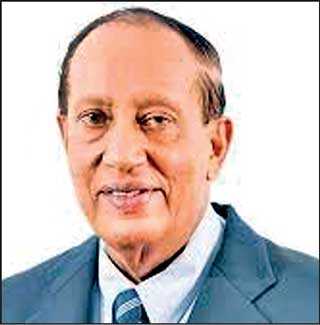Sunday Mar 09, 2025
Sunday Mar 09, 2025
Friday, 23 April 2021 00:00 - - {{hitsCtrl.values.hits}}
 |
| Dr. Prathap Ramanujam |
Dr. Prathap Ramanujam, considered as the longest serving Tourism Secretary, yesterday reiterated that the private sector representation is a must in the development of tourism and marketing of the destination as mandated in the existing Act
rather than the Government taking the onus via new legislation.
Dr. Ramanujam, as Secretary, was the Co-Chair of the high-powered and well-industry represented Task Force to formulate the Tourism Act of 2005.
“I don’t think the existing Act should be repealed, thereby progress backwards,” he told the Daily FT.
“Perhaps the new administration doesn›t know how the tourism sector works. Back then we did a thorough analysis of the previous Act and found that the then Ceylon Tourist Board was overburdened with too many responsibilities.
“There were a lot of issues and complaints primarily due to the lack of private sector engagement. Resultantly, there was consensus that regulation and promotion must be separated since one agency doing both caused conflicts. This led to a more pragmatic approach of setting up the Sri Lanka Tourism Development Authority (SLTDA) for policy setting and regulation, and the Sri Lanka Tourism Promotion Bureau (SLTPB) for destination marketing,” Ramanujam said.
“Since tourism is run and funded (mainly via Tourism Development Levy) by the private sector, it was mandated that it should have due representation in these institutions and that the expenditure on marketing must be done with private sector inputs and concurrence,” he added.
“The Government cannot do tourism nor marketing since it is 100% private sector driven,” emphasised Dr. Ramanjuam, a former career civil servant who now serves on several private sector Boards as an Independent Non-Executive Director.
“The role of the Government is efficient facilitation in terms of right policies and procedures agreed upon with proper consultation with and inputs from the private sector. The 2005 Act in fact formalised this,” he said, recalling that he couldn’t have functioned as Tourism Secretary without the expertise of and active engagement with the private sector.
“Apart from contributing to the Tourism Fund, the private sector also invests considerable money to do their own marketing. This is in addition to having invested in building and operating hotels and resorts. All this makes a compelling case for private sector representation in the SLTPB and the SLTDA and the Sri Lanka Conventions Bureau,” Dr. Ramanujam pointed out.
He also said that the benefits of the 2005 Act were evident with the rapid growth in tourism with arrivals increasing to a record 2.3 million and earnings of over $ 4 billion by 2018.
It was pointed out that the new administration must clearly identify the real stakeholders of the tourism sector, especially those who take the trouble to bring tourists into the country, as opposed to being swayed by those who provide crucial yet ancillary support services.
“The existing Act does look after the interests of the small and medium sector of the industry, whilst I admit more can be done. However, for this, the engagement with and support of the big industry stakeholders is critical,” he added.
Discover Kapruka, the leading online shopping platform in Sri Lanka, where you can conveniently send Gifts and Flowers to your loved ones for any event including Valentine ’s Day. Explore a wide range of popular Shopping Categories on Kapruka, including Toys, Groceries, Electronics, Birthday Cakes, Fruits, Chocolates, Flower Bouquets, Clothing, Watches, Lingerie, Gift Sets and Jewellery. Also if you’re interested in selling with Kapruka, Partner Central by Kapruka is the best solution to start with. Moreover, through Kapruka Global Shop, you can also enjoy the convenience of purchasing products from renowned platforms like Amazon and eBay and have them delivered to Sri Lanka.
Discover Kapruka, the leading online shopping platform in Sri Lanka, where you can conveniently send Gifts and Flowers to your loved ones for any event including Valentine ’s Day. Explore a wide range of popular Shopping Categories on Kapruka, including Toys, Groceries, Electronics, Birthday Cakes, Fruits, Chocolates, Flower Bouquets, Clothing, Watches, Lingerie, Gift Sets and Jewellery. Also if you’re interested in selling with Kapruka, Partner Central by Kapruka is the best solution to start with. Moreover, through Kapruka Global Shop, you can also enjoy the convenience of purchasing products from renowned platforms like Amazon and eBay and have them delivered to Sri Lanka.